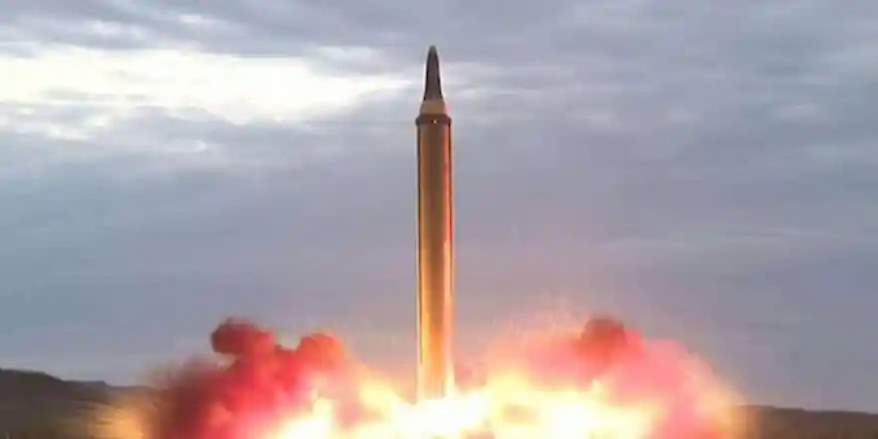By Thalif Deen
NEW YORK (IDN) — A tripartite deal, under which the US and UK have joined hands, to provide a nuclear-powered submarine to Australia (AUKUS) has prompted anti-nuclear activists to express fears it may eventually lead to a new nuclear power in the region.
The Australian Prime Minister Scott Morrison has said the three nations had agreed to “a new enhanced trilateral security partnership”. The new arrangement, he asserted, “does not signal a move towards domestic nuclear power or nuclear weapons”. [2021-09-25] ARABIC | GERMAN | JAPANESE
But the Australian Conservation Foundation (ACF) says they could have confidence in the Prime Minister’s statement if he signed and ratified the Treaty on the Prohibition of Nuclear Weapons.
“Not to do so, leaves the door open for a future stealthy slide towards nuclear weapons”, the Foundation warned.
So far more 50 states have ratified the Treaty. Australia is not among them.
According to the UN Office for Disarmament Affairs (UNODA), the Treaty was open for signature on 20 September 2017. So far, 50 States have signed the treaty, with three (3) States also depositing their instruments of ratification with the Office of Legal Affairs.
Australia is not among them.
Dave Sweeney of the ACF says “while there is much we still don’t know about the new defence deal with the US and UK, this is a significant move with serious implications for Australia.”
Nuclear powered submarines pose specific environmental and security concerns — to Australian ports, shipyards and seas, he said.
Meanwhile, the French are furious that the deal has scuttled a hefty $66 billion contract with Australia—for 12 French-made diesel-electric submarines—threatening a political rift between France and UK-US.
The AUKUS deal is also viewed as an effort to reset the naval balance in the Pacific even as China also asserts its presence in the south China sea and expands its territorial claims reaching out to Taiwan, fully armed and equipped by the US.
Dr Rebecca Johnson of the British-based Acronym Institute for Disarmament Diplomacy (AIDD), told IDN that as the COP26 climate change conference (scheduled for 31 October-12 November in Glasgow, Scotland) approaches “we need to recognise that this nuclear submarine deal is a dangerous distraction from the real security and climate challenges that face the planet.”
She said nuclear submarines are essentially for playing military games of hide-and-seek while threatening nuclear war.
“Australia’s decision to break its contract with France has been framed in terms of defending against China, but with global heating threatening every year, this is like fussing with the chairs as a dozen nuclear powered Titanics hit the ocean floor”, she warned.
Dr M. V. Ramana, Professor and Simons Chair in Disarmament, Global and Human Security and Director, Liu Institute for Global Issues at the School of Public Policy and Global Affairs at the University of British Columbia, Vancouver, told IDN the AUKUS partnership and the proposal to transfer nuclear powered submarines definitely increases tensions with China and adds fuel to the arms race that has been ongoing.
“Because this step draws in more countries into this race, it will likely lead to the Chinese leadership feeling more encircled. To that extent, it does make war a bit more likely, even if not imminent,” he argued.
The other impact of this decision to share sensitive military technology is to further damage the nuclear non-proliferation regime, which is already weak, he said.
“There has always been concern about non-nuclear-weapon states developing nuclear powered submarines, as for example with Brazil. This is because it is impossible to track the enriched uranium or plutonium in the nuclear reactors that are powering these submarines,” said Dr Ramana.
When these nuclear submarines are out at sea, he pointed out, they will be in unidentified locations, and cannot be tracked by, for example, the International Atomic Energy Agency.
Transferring nuclear powered submarines, that too fuelled by highly enriched uranium, sets a very bad precedent for other countries, declared Dr Ramana.
Dr Johnson said going in with Britain and US to get doubly dangerous uranium-fuelled submarines put regional and international security at greater risks and makes it harder to find diplomatic and cooperative solutions.
Instead of embarking on a slippery slope of breaching the Non-Proliferation Treaty (NPT) and security agreements with other South Pacific Nations such as the Treaty of Rarotonga, she said, Australia’s interests would be best served by signing and implementing the UN Treaty on the Prohibition of Nuclear Weapons, as would the overall security of Britain, France, China and the United States.’
“’We all have to wake up and smell the planet burning. Instead of escalating threats that could lead to nuclear war, now is the time to prioritise collective humanitarian security and put far more resources into deeper cuts in greenhouse gases to prevent climate meltdown.”, she declared.
Dino Patti Djalal, a former Indonesian Ambassador to the US, was quoted as saying: “The picture is one of three Anglo-Saxon countries drumming up militarily in the Indo-Pacific region. “
It plays to the narrative offered by China that “outsiders” are not acting in line with the aspirations of regional countries, he added.
“The worry is that this will spark an untimely arms race, which the region does not need now, nor in the future”. [IDN-InDepthNews — 25 September 2021]
Photo source: Warfare.Today




